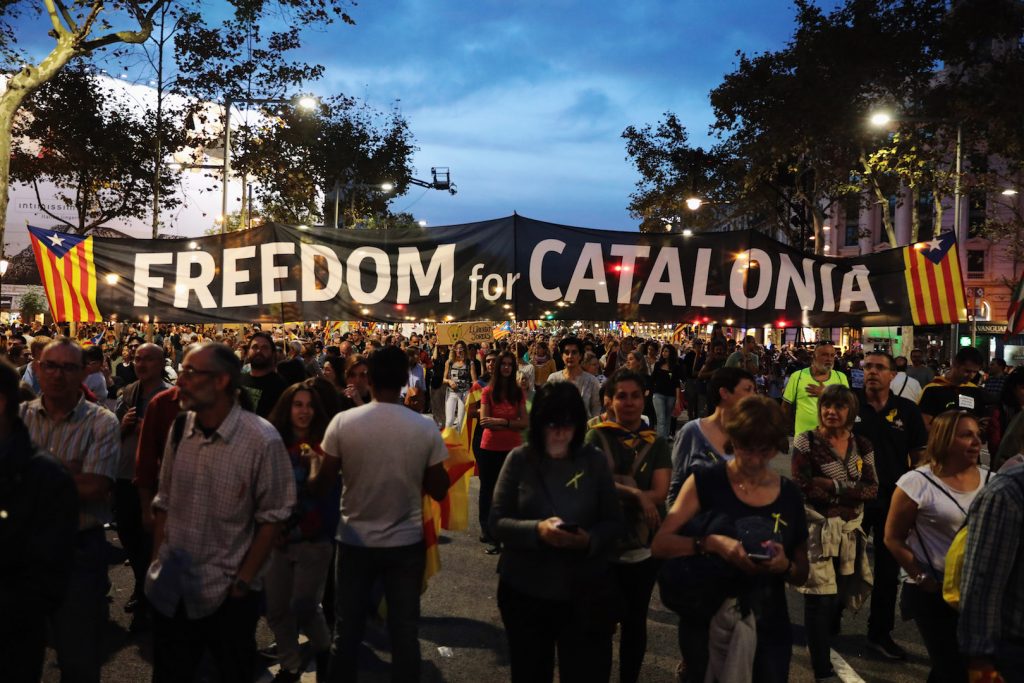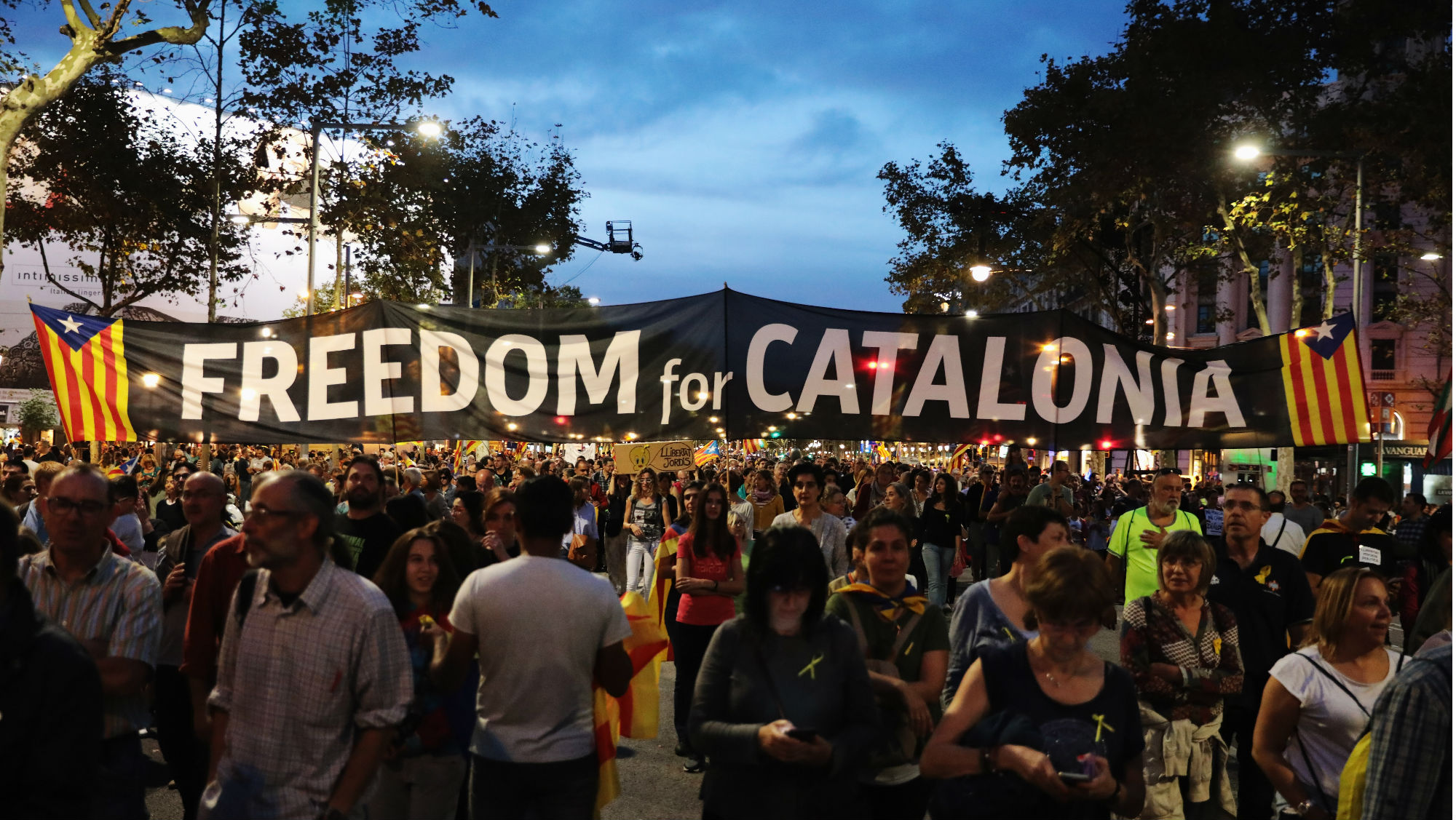By George Friedman
For centuries Europe has fought wars over borders. During the 19th century and the first half of the 20th century, Europe’s borders shifted wildly, as empires fragmented, new nations arose and wars were waged. After 1945 and the beginning of the Cold War, a new principle emerged on the Continent. The borders that existed at the end of World War II were deemed sacrosanct, not to be changed. The confrontation of the United States and the Soviet Union in Europe was enormously dangerous. It was understood that border disputes had been one of the origins of the two world wars and that even raising the legitimacy of post-war borders risked igniting passions that led to violence.
Europeans generally accepted that living with unreasonable or unjust borders was far better than trying to get them right. So, during the Cold War, border issues were rarely raised, and when they were, they were usually quickly swept under the rug. The U.S. and Soviet Union were calling the shots, and neither wanted a world war over Europe’s borders, nor did they trust the common sense of European politicians, particularly after the wars of the first half of the 20th century.
Similarly untouchable were the existing spheres of influence on the Continent. There was the East and the West, and neither would mess with the other. Thus, when the Soviets crushed independence movements in Hungary and Czechoslovakia, the United States refrained from any military action (not that there were many options). When Yugoslavia chose a pro-Western neutrality over membership in the Warsaw Pact, and the Soviets might have responded by supporting independence movements in Yugoslavia’s member states, they ultimately declined. Borders, and the reckless behavior of Europe’s leaders over those borders, had led to tens of millions of deaths. The Americans and Soviets were more prudent, in part because it wasn’t their borders at stake.
In 1991-92, two things happened. First came the fall of the Soviet Union; then came the signing of the Maastricht Treaty and the creation of the European Union. Border issues began to drive events again. The border of the Soviet Union collapsed, and a multitude of countries popped up to reclaim their past. There were many questions about borders that were mumbled about. The border of Ukraine and Belarus had moved far to the west in 1945. The borders in the Caucasus were poorly defined. The borders in Central Asia were theoretical. And the borders between Eastern European countries had been the subject of suspended dispute.
For Eastern European countries, other problems took precedence: establishing national sovereignty, finding their place in a Europe that they longed to join, and building a new life for their people. They let the border issue drop – for the most part.
Yugoslavia and the Caucasus were exceptions that drove home the lesson of European borders. There, outside the framework of the EU and of little consequence to others, more than 100,000 people died. Compare this to the Velvet Divorce of the Czechs and Slovaks, which took place within the context of future European states and left no one dead. After this, and with Yugoslavia and the Caucasus in mind, the European Union tried to reinstate the principle that borders were sacrosanct. It provided what it had promised – peace and prosperity – and treated borders as anachronistic. No one was supposed to care where the lines were drawn.
But there was a problem. The European Union had affirmed the principle of national self-determination while avoiding the question of what a nation actually was. A nation was, under the bloc’s definition, any political entity that was in place when the EU was formed. There was little consideration after that.
 Protesters gather in the center of Barcelona to demonstrate against the Spanish federal government’s move to suspend Catalan autonomy on Oct. 21, 2017. JACK TAYLOR/Getty Images
Protesters gather in the center of Barcelona to demonstrate against the Spanish federal government’s move to suspend Catalan autonomy on Oct. 21, 2017. JACK TAYLOR/Getty Images
This is why Catalonia is so important, along with Scotland. The Scots rejected a divorce by a startlingly narrow vote. One would have expected 90 percent of Scots to want to remain in the United Kingdom. Slightly more than 55 percent wanted to, which means secessionists are within striking distance of secession – which would not only divide Scotland from England, but would also maintain the divide among the Scots.
Add to this another critical element. Catalonia has been part of Spain for a long time, but it has considered itself a unique nation apart for an even longer time. Spain will not legalize an independence vote. The underlying questions are the ones the Europeans tried to bury, particularly after Yugoslavia: What is a nation, and what rights does it have? Both Scotland and Catalonia are nations. Do they therefore have a right to national determination or have they lost that right? And what are the consequences if the Catalans disagree?
This is not the only such issue festering in Europe. Hungary was partitioned between Romania and Slovakia. Does it have a right to reclaim these lands? Belgium was a British invention binding the Dutch and French in an unhappy marriage. Can they divorce? Lviv used to be a very Polish city, and now it is part of Ukraine. Can western Ukraine secede and its people rejoin the countries they were citizens of before 1945?
The European Union promised universal prosperity for everyone if they suspended the question of borders and ignored their identities. It was a good bargain. But times have changed, and economic problems make borders much more important. Europe, of course, has no solution to the problem. That we would be talking about an independent Scotland and Catalonia in 2017 would seem preposterous. No economist would see it as a rational discussion.
The economic man, as envisioned by the EU, is unfortunately an insufficient explanation for who we are. Nations matter because Europe is merely a continent, and the EU is merely a treaty. It is a useful entity, and being useful is the only thing that justifies it. If it loses its utility, it loses its legitimacy. And that would also mean that the boundaries it has set on what is admissible would wither and die. Catalonia and Scotland both have serious independence movements. They want to determine their own futures, because they see themselves as distinct. Even if they were to join the EU on their own, the very idea of old European nations reasserting themselves, and questioning the legitimacy of borders as they were drawn in 1945, terrifies the EU. Indeed, it should frighten it more than Brexit. Almost all current nations in Europe have border issues and constituent parts that want to be independent. Most are quiescent at the moment. But they are watching Scotland and Catalonia. And they know where border issues in Europe lead.






 The Geopolitics of the American President
The Geopolitics of the American President